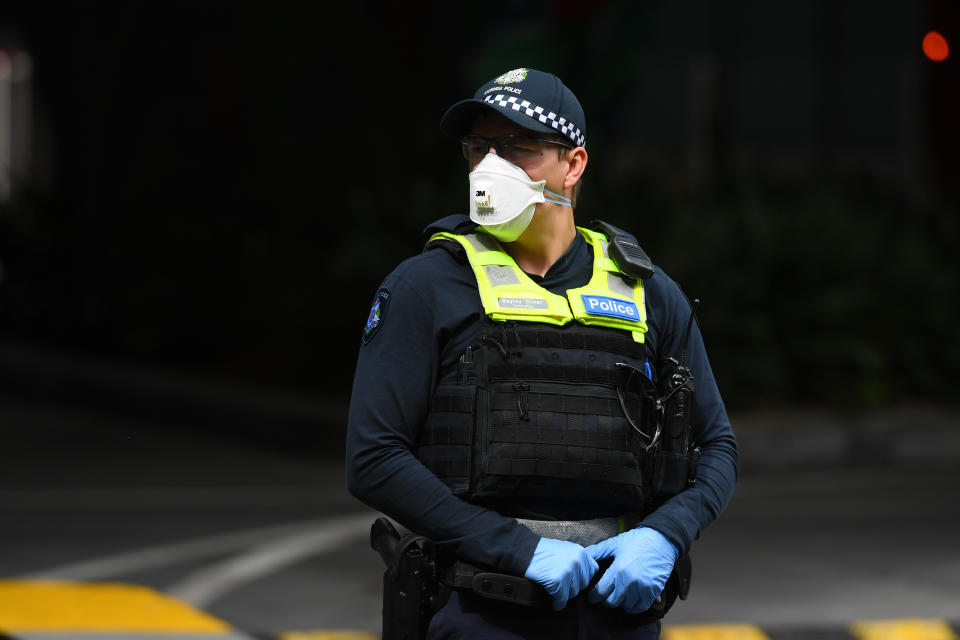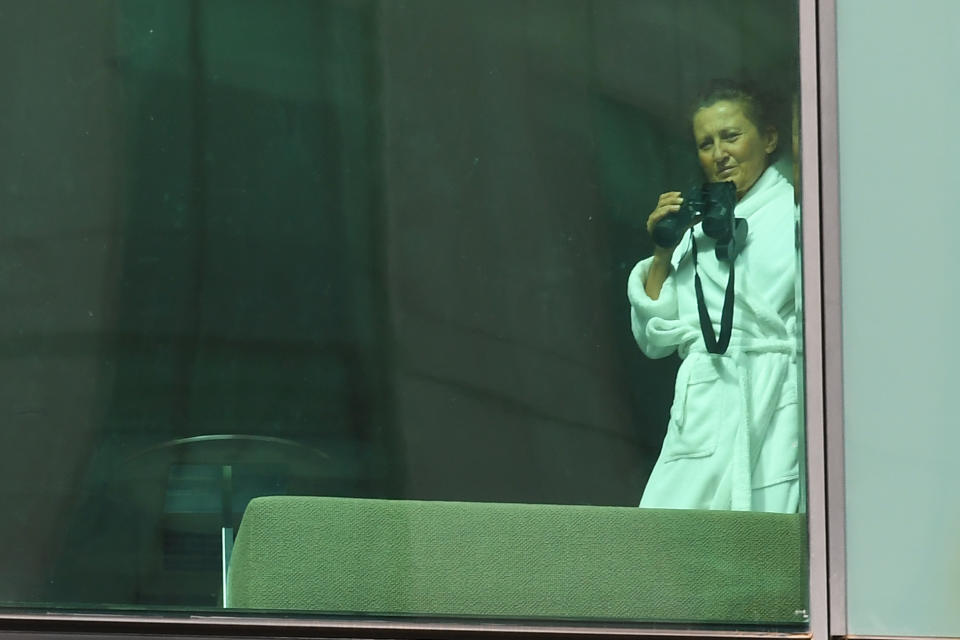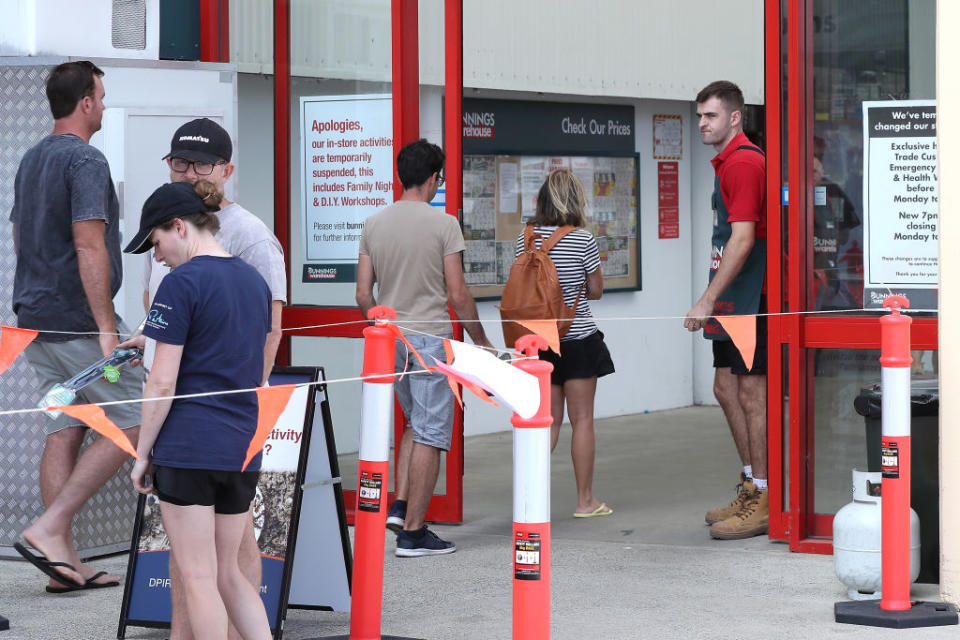What a 'stage four' coronavirus lockdown could look like
As the novel coronavirus spreads throughout the Australia population, the government is acting like a slow-turning vice, gradually tightening the controls on what people are allowed to do.
As things tighten, some of your favourite stores such as Kmart, Big W and Ikea are in the firing line.
On Sunday, Scott Morrison announced that indoor and outdoor gatherings of more than two people (who you don’t live with) were now off the table – following in the footsteps of a number of European countries which did the same last week.
While the prime minister has set out certain guidelines, the states have introduced their own enforceable rules.

From today, new rules dubbed ‘stage three’ in Victoria came into effect which call for residents to stay in their home except for four essential reasons.
“To get medical care, to go to work, for your daily exercise and to go and buy the things you need when you need them,” Victorian premier Daniel Andrews explained on Monday.
NSW and other states have adopted a similar system, all with varying levels of fines for those who are found by police to be flagrantly in breach of the public controls.
Non-essential stores likely to shut in ‘stage four’
Unlike certain other countries, Australia’s incremental lockdown hasn’t been mapped out with clear guidelines and objectives but has been rolled out in a piecemeal fashion.
But regardless of the language used to describe it, the vice is going to get tighter and it’s highly likely something akin to ‘stage four’ restrictions will be brought in to combat the spread of the novel coronavirus.
In that event, many more retail stores would be first on the chopping block.
Plenty of stores have already closed their doors due to plummeting demand and foot traffic, but if the government tightens restrictions those continuing to sell non-essential goods would temporarily close.
Hard-hit countries in Europe such as Italy, Spain, Germany and the UK, have enacted a near complete lockdown which has seen all shops closed, except for those selling essential goods.
In Great Britain, for example, the stores allowed to remain open are food retailers, pharmacies, corner shops, petrol stations, post offices, banks, newsagents, laundry services and vets.

While Australia is currently in a better position than most European countries in terms of the spread of the virus, Terry Barnes, a former Howard Government adviser and public policy expert, thinks Australia could soon follow suit.
“There is a stage four – just look at the UK and Europe – total lockdown,” he told news.com.au this week.
“The list of essential businesses or jobs gets really tight. Effectively it’s martial law without martial law. People will be monitored and fined for being out and about when they shouldn’t be,” he said.
In the interest of workers, the Australian government has shown a reticence to shutdown businesses but in the eventuality of so-called ‘stage four’ restrictions, a store like OfficeWorks might get a pass to stay open but the likes of Harvey Norman, Ikea, Big W and Kmart as well as all clothes retailers would close.
Despite concerns over a lack of in-store social distancing, If Australia adopted the same policy as the UK, Bunnings would remain open.
Bunnings Managing Director Michael Schneider is quick to point out the essential nature of the retailer for tradies who are carrying out urgent repair jobs.
“We understand the importance that a reliable supply of key products is to both DIY and trade customers to keep their businesses running and support their local communities, particularly with emergency repairs and maintenance,” he told Yahoo News Australia in a statement.

Prospect of digital surveillance
A number of countries, particularly through Asia, have harnessed technology to track citizens in a bid to trace the spread of coronavirus.
Associate professor Bingqin Li, an expert in Chinese governance said extreme lockdown measures in China were required as hospitals became overwhelmed and due to the fact the outbreak coincided with Chinese New Year celebrations – a time of great travel and gatherings.
“Australia’s hospitals are not under that kind of stress yet,” she told Yahoo News Australia.
“China installed a lot of electronic gadgets,” she said. “Their acceptance of this digital surveillance is much higher.”
Countries like Singapore, which was highly successful in containing the virus, did so with extensive public testing and surveillance.
When it comes to strict lockdown measures, and enforcing social distancing, Prof Li said countries like China and Singapore which have a greater experience with virus epidemics are more willing to quickly accept and abide by the new rules and tolerate intense surveillance.
“Whether people follow the instructions has very much to do with people’s understanding of the illness,” she said.
Liberal western democracies like Australia tend not to have the same attitudes towards heavy social monitoring but the Australian government is reportedly considering tracking mobile phone data more closely with the Department of Home Affairs telling News Corp Thursday it would “explore all options” to reduce the spread of the virus.
New Zealand in level four lockdown
Despite having its first coronavirus death on the weekend, New Zealand had already entered its own ‘stage four’ lockdown.
The country has rolled out a tiered lockdown system beginning at level one, dubbed ‘Prepare’ before rising through ‘Reduce’, ‘Restrict’ and the current level four: ‘Eliminate’.
It is considerably stricter than Australia’s lockdown rules at the moment and could provide a blueprint for Australia if things deteriorate.
“I understand if there is a beach on your doorstep you may choose to walk up and down it but congregation is what we cannot have. I do not want to see the scenes of Bondi Beach here,” New Zealand Prime Minister Jacinda Ardern said in a press conference on Friday.
In New Zealand, all non-essential stores are closed, as are public playgrounds.
Unlike Australia, grog shops, except those within an area controlled by a community-owned licensing trust have been closed while cafes, restaurants and bars are also completely closed, so no takeaway.
Despite going early on the lockdown, Ms Ardern says the country needs to ramp up its testing to get a clearer picture of how the virus is spreading through the country.
Do you have a story tip? Email: newsroomau@yahoonews.com.
You can also follow us on Facebook, Instagram and Twitter and download the Yahoo News app from the App Store or Google Play.





